
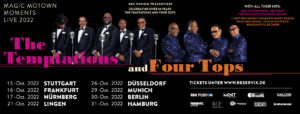 SoulDisco had to chance to talk to Otis Williams about the upcoming Tour in germany.
SoulDisco had to chance to talk to Otis Williams about the upcoming Tour in germany.
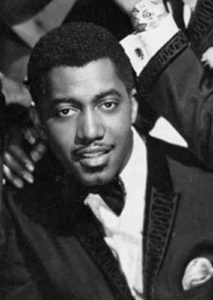
1. What can fans look forward to on the 2022 tour? Are there any new elements in the show?
The Temptations have been touring throughout the U.S. in the first half of this year and it’s been wonderful. Looking ahead, we are very excited about headlining concerts with The Four Tops this fall in the United Kingdom, France, Germany, Belgium, and the Netherlands. It’s been several years since The Temptations have been abroad so we can’t wait to see our fans again.
We have a great show planned that includes fan favorites such as, “My Girl,” “Just My Imagination (Running Away With Me),” “Ain’t Too Proud To Beg,” “Papa Was a Rollin’ Stone,” “I Wish It Would Rain,” “Treat Her Like A Lady” and more chart hits.
In terms of new elements in the show, we are featuring in our set list, “Is It Gonna Be Yes or No,” a brand-new song written and produced by the legendary Smokey Robinson, from our new album, TEMPTATIONS 60. The new album which I executive produced, is available now via live stream and as a CD edition.
 2. You are looking back on 60 years of successful stage presence. At what point were you aware that you essentially shaped the style of soul music?
2. You are looking back on 60 years of successful stage presence. At what point were you aware that you essentially shaped the style of soul music?
It’s hard to pinpoint an exact moment, it’s really been a culmination of extraordinary events over the past 60 years.
Early in our career we knew our music was shaping not only the sound of young America but influencing the music landscape globally. In 1965, when “My Girl” became our first #1 charted record and sold multi-millions of copies, we knew we were changing the game and creating a different kind of sound for the next generation. Even when we traveled abroad on Motown’s Motortown Revue tours in the 60s, people embraced our music and began singing our songs. We recognized then that music is a universal language. We were a significant part of the Motown movement that took the country by storm in the 60s. Motown moved the needle in music culture, and we were blessed enough to be a major part of that beloved and iconic sound.
A few years ago, when we were named the #1 R&B Artists of All Time by Billboard magazine, you could have tipped me over with a feather. It is such a great honor. We love what we do, and we love seeing smiles on our fans’ faces when we are on tour. We can’t wait to see our fans on tour.
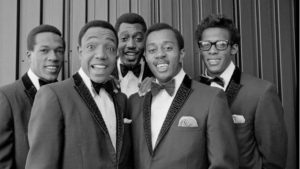 3. Which special moments of your career do you remember the most?
3. Which special moments of your career do you remember the most?
When we started out in 1961, I had no inclination I would still be on stage performing 60 years later. I look at my career as a blessing from God. After carrying The Temptations’ legacy on all these years, I’m receiving more blessings now than I ever could have imagined. I’m like a little kid in a toy store when I see how much audiences still love to see The Temptations perform, especially when I see that love and appreciation passed on to a second and third generation in the same family. We like bringing happiness and joy into people’s lives while we are performing. I’m happy when fans come to our concerts, leave their busy lives behind for a few hours, and find some kind of solace in our music.
There have been so many extraordinary moments in my career, that remain vivid in my memory, far too many to share at one time. Here are just a few:
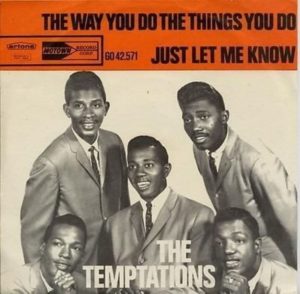 One special moment that still stands out was when we learned we had a national hit with our single, “The Way You Do The Things You Do” which was written by Smokey Robinson and Bobby Rogers. That was a big moment. We had just come back to Detroit from one of tour stints in cities around Michigan. When we got to Motown, we were told the song had hit the charts at #76. By the time we had released “The Way You Do The Things You Do,” we had recorded seven or eight records including “I Want a Love I Can See,” which we thought was going to be a hit. When we saw the music trades with our song on the chart, we just sat there in the Motown lobby and cried like little boys about to get their butts whipped. The song took off in Chicago, Philly, New York and around the country and climbed the national Pop chart to # 11. That was 1964 and we’ve been rolling ever since.
One special moment that still stands out was when we learned we had a national hit with our single, “The Way You Do The Things You Do” which was written by Smokey Robinson and Bobby Rogers. That was a big moment. We had just come back to Detroit from one of tour stints in cities around Michigan. When we got to Motown, we were told the song had hit the charts at #76. By the time we had released “The Way You Do The Things You Do,” we had recorded seven or eight records including “I Want a Love I Can See,” which we thought was going to be a hit. When we saw the music trades with our song on the chart, we just sat there in the Motown lobby and cried like little boys about to get their butts whipped. The song took off in Chicago, Philly, New York and around the country and climbed the national Pop chart to # 11. That was 1964 and we’ve been rolling ever since.
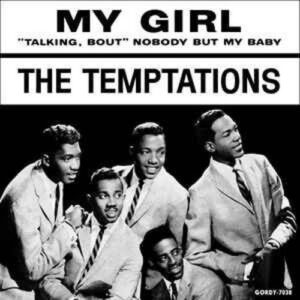 Another huge moment came in 1965, when “My Girl,” became a #1 Pop chart hit. That hit was a game changer for The Temptations. We were performing at the Apollo Theater in Harlem when we received telegrams from Berry Gordy, The Supremes, The Beatles and others, congratulating us on our #1 success. It was The Temptations’ first #1 charted record and sold multi-millions of copies. “My Girl” was inducted into The Grammy Hall of Fame in 1998 and in 2018 it was entered into the National Recording Registry by the Library of Congress. It has become a standard now. “My Girl” opened the door to global attention for the group and we continued to produce a string of chart hits in the decades to follow.
Another huge moment came in 1965, when “My Girl,” became a #1 Pop chart hit. That hit was a game changer for The Temptations. We were performing at the Apollo Theater in Harlem when we received telegrams from Berry Gordy, The Supremes, The Beatles and others, congratulating us on our #1 success. It was The Temptations’ first #1 charted record and sold multi-millions of copies. “My Girl” was inducted into The Grammy Hall of Fame in 1998 and in 2018 it was entered into the National Recording Registry by the Library of Congress. It has become a standard now. “My Girl” opened the door to global attention for the group and we continued to produce a string of chart hits in the decades to follow.
 Another memorable time was (during our Classic Five period) doing five shows in one day at The Apollo Theater in New York City. The line of fans outside the Theater wrapped around several blocks and avenues. We opened the show with the song “Hello Young Lovers,” rather than opening with an R&B tune. That was a bold move to make at the Apollo. The curtain would be closed and when our famous four-headed microphone was placed on the stage in front of the closed curtain, the audience would go wild. The curtain would go up and we’d start with that song and fans would rush to the front of the stage. Also memorable were our appearances at the famous Copacabana supper club in New York, and our 13 appearances on The Ed Sullivan television show, and so many others national TV programs. We knew back then that our music had become iconic in the global entertainment world.
Another memorable time was (during our Classic Five period) doing five shows in one day at The Apollo Theater in New York City. The line of fans outside the Theater wrapped around several blocks and avenues. We opened the show with the song “Hello Young Lovers,” rather than opening with an R&B tune. That was a bold move to make at the Apollo. The curtain would be closed and when our famous four-headed microphone was placed on the stage in front of the closed curtain, the audience would go wild. The curtain would go up and we’d start with that song and fans would rush to the front of the stage. Also memorable were our appearances at the famous Copacabana supper club in New York, and our 13 appearances on The Ed Sullivan television show, and so many others national TV programs. We knew back then that our music had become iconic in the global entertainment world.
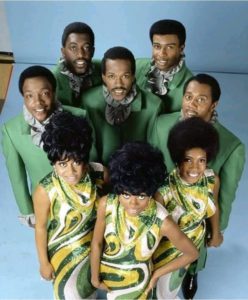 I’ll always remember in 1968, and 1969, Diana Ross and the Supremes and The Temptations starred in primetime network television specials “TCB (Taking Care of Business)” and “G.I.T. (Getting It Together) on Broadway.” Never before had two contemporary African American groups headlined their own #1 nationally rated television specials, both produced by Motown, an African American owned company. The “TCB” special was named the #1 rated variety show in 1968 and received an Emmy® nomination. The original cast soundtrack album, TCB, reached #1 on Billboard’s Top 200 Albums chart.
I’ll always remember in 1968, and 1969, Diana Ross and the Supremes and The Temptations starred in primetime network television specials “TCB (Taking Care of Business)” and “G.I.T. (Getting It Together) on Broadway.” Never before had two contemporary African American groups headlined their own #1 nationally rated television specials, both produced by Motown, an African American owned company. The “TCB” special was named the #1 rated variety show in 1968 and received an Emmy® nomination. The original cast soundtrack album, TCB, reached #1 on Billboard’s Top 200 Albums chart.
 Other big moments included when The Temptations delivered Motown’s and our first-ever, GRAMMY® at the 11th Annual Grammy® Awards in 1969 for Best Rhythm & Blues Performance by a Duo or Group, Vocal or Instrumental, for our song, “Cloud Nine.” We have also been awarded five Grammy® Awards, including the Recording Academy’s Lifetime Achievement Grammy® Award.
Other big moments included when The Temptations delivered Motown’s and our first-ever, GRAMMY® at the 11th Annual Grammy® Awards in 1969 for Best Rhythm & Blues Performance by a Duo or Group, Vocal or Instrumental, for our song, “Cloud Nine.” We have also been awarded five Grammy® Awards, including the Recording Academy’s Lifetime Achievement Grammy® Award.
Of course, being inducted into the Rock and Roll Hall of Fame in 1989 was a very big moment for the group as well as receiving so many other prestigious awards and accolades. We have over 50 gold, platinum and multi-platinum awards all combined.
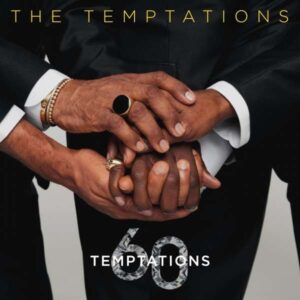 Earlier this year, it was incredible delivering our 60th anniversary album, TEMPTATIONS 60. Being back in the studio this time reminded me of how long and rewarding a journey it has been. I get emotional when I think about it, because we poured every ounce of our heart and soul into making the new album very special, and I can proudly say it showcases brand new songs that reflect the best of what’s vintage, and modern, in our music. This new album represents generations of unique melodies, lyrics and songs, distinctly our own. Some of the new songs echo our original ballads and love songs, while others capture current, topical vibes of the 21st Century. It also includes new songs that reflect the times we are living in now. It brings together again several great producers we have worked with in the past, including Smokey Robinson, Narada Michael Walden, Dennis Nelson and Thomas “TC” Campbell. Now, as divine grace would have it, we got another chance to collaborate again.”
Earlier this year, it was incredible delivering our 60th anniversary album, TEMPTATIONS 60. Being back in the studio this time reminded me of how long and rewarding a journey it has been. I get emotional when I think about it, because we poured every ounce of our heart and soul into making the new album very special, and I can proudly say it showcases brand new songs that reflect the best of what’s vintage, and modern, in our music. This new album represents generations of unique melodies, lyrics and songs, distinctly our own. Some of the new songs echo our original ballads and love songs, while others capture current, topical vibes of the 21st Century. It also includes new songs that reflect the times we are living in now. It brings together again several great producers we have worked with in the past, including Smokey Robinson, Narada Michael Walden, Dennis Nelson and Thomas “TC” Campbell. Now, as divine grace would have it, we got another chance to collaborate again.”
Another landmark moment, that was quite overwhelming, personally and emotionally, was opening night on Broadway, in March 2019, of Ain’t Too Proud: The Life and Times of the Temptations, a musical based on my autobiography. The experience was surreal, because as young guys starting out, we never imagined performing on stages around the world, let alone that my story about our journey would someday appear under the bright lights on Broadway. I feel blessed that our music lives on in the hearts of fans worldwide and has been celebrated on the prestigious Imperial Theater stage on Broadway. It’s an incredibly moving tribute to our music and honors our place in history. After completing its run on the Broadway stage, the touring production of The Broadway musical is currently touring to 50 cities in the U.S. throughout this year and next.
I am really proud that we are continuing to reach a whole new generation of fans with the touring production of the Musical. We feel blessed and give thanks to God.
For details, see the link here: https://ainttooproudmusical.com/
4. Do you remember the very first concert The Temptations and The Four Tops did together?
 The Temptations first performed with The Four Tops on the Motortown Revue Tours in the 60s. We really enjoyed being on the road together. Back in the day, back in Detroit we considered them competition. They had a sophisticated style and some fantastic moves on stage. Duke Fakir, a founding member of The Tops, and I go back as far as those very early days of Motown. I even remember seeing the Tops perform in Detroit back in fifties and I thought they were greatest, and still do.
The Temptations first performed with The Four Tops on the Motortown Revue Tours in the 60s. We really enjoyed being on the road together. Back in the day, back in Detroit we considered them competition. They had a sophisticated style and some fantastic moves on stage. Duke Fakir, a founding member of The Tops, and I go back as far as those very early days of Motown. I even remember seeing the Tops perform in Detroit back in fifties and I thought they were greatest, and still do.

We love The Four Tops’ songs and love performing with them still today. Both groups, The Temptations and The Four Tops are headlining concerts together in Europe this fall.
 One of most memorable experiences with The Tops was back in 1983 when we did the Motown 25 television special together. That network television special had to be one of the biggest events that year. Motown brought together many of its famous artists for the special, including The Supremes, The Temptations, The Four Tops, Marvin Gaye, Stevie Wonder, The Jacksons, Martha Reeves, and many others. Someone came up with the idea to have The Temptations and The Four Tops do a little singing battle during the show.
One of most memorable experiences with The Tops was back in 1983 when we did the Motown 25 television special together. That network television special had to be one of the biggest events that year. Motown brought together many of its famous artists for the special, including The Supremes, The Temptations, The Four Tops, Marvin Gaye, Stevie Wonder, The Jacksons, Martha Reeves, and many others. Someone came up with the idea to have The Temptations and The Four Tops do a little singing battle during the show.

The Tempts and The Tops both switched off between medleys of our hits. Then we’d sing parts of their songs, and they would sing parts of our songs. At that time, it was Dennis Edwards and Levi Stubbs going at it and the audience loved it. It was such a popular part of that Motown Special that a T’n’T tour was created, which ran for nearly three years and went all over the world.

5. How do you keep yourselves fit for touring life?
The key is you’ve got to get rest and watch your diet. It takes discipline to resist developing bad eating habits on the road. Some of it is just using plain common sense, but common sense isn’t so common if you don’t use it. When I moved to Los Angeles in 74, I thought, man you really have to take better care of yourself, starting right now. So, I started focusing more on what I eat.
We also have to stay nimble for our choreographed dance routines, so I try to exercise whenever possible. Our audiences are still looking for The Tempts to do our well-known choreography during concerts, so we have to stay in shape. In our show now, we still do our choreographed moves, but at a certain point we also bring out stools and sit and talk to the audience. I’m panting a little bit by that time, and I tell them, ”I’ve been doing this for seven decades now and I’m tired you all.” The audience falls out laughing. We turn it into a comedy thing and our fans love it. Sometimes I look at the stuff we used to do in the early decades of my career, and I think to myself, only when you are young! Also, I try to keep a wonderful spirit. I love what I do, bringing happiness to people through our music.

6. What (musical) projects are you working on at the moment?
As I mentioned earlier, The Temptations are still celebrating their 60th Anniversary through 2022. To mark our milestone, we released in January 2022, a brand-new album, TEMPTATIONS 60. which is available now via live stream and as a CD edition. The new album consists of nearly all-original songs. In addition to tracks produced by group members, the album brings us back together again with some of our most beloved producers, including the legendary Smokey Robinson and Narada Michael Walden.
We remain very excited that the Tony® Award-winning Broadway musical, Ain’t Too Proud: The Life and Times of The Temptations, based on my personal journey is currently touring nationally in the U.S. While on Broadway, the musical received 12 Tony nominations, including Best Musical and won the Tony® Award for Best Choreography at the 73rd Tony® Awards at Radio City Music Hall in New York City on June 10, 2019. The musical is scheduled to open in theaters in more than 50 cities across the U.S. throughout this year and next.

For details, see the link here: https://ainttooproudmusical.com/
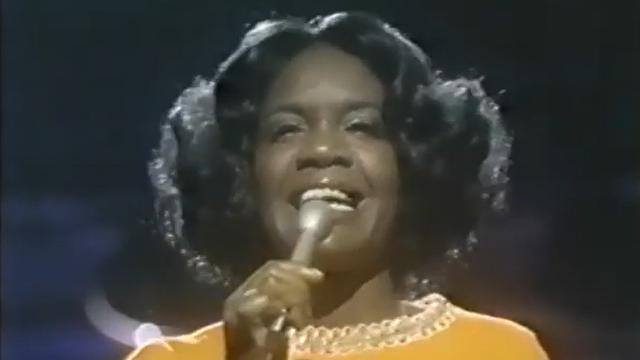

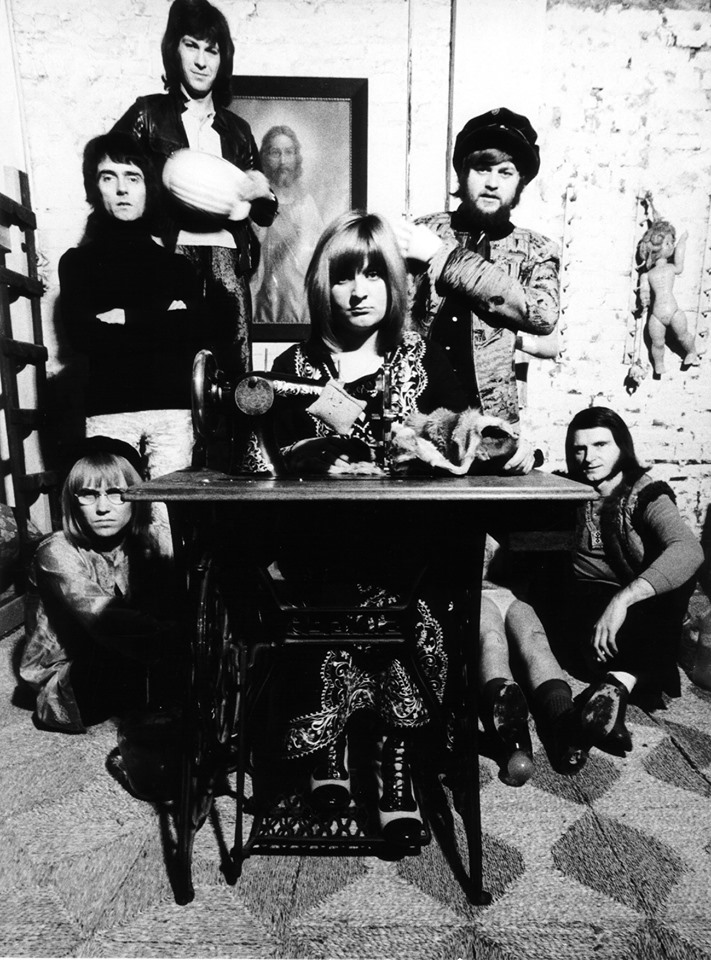
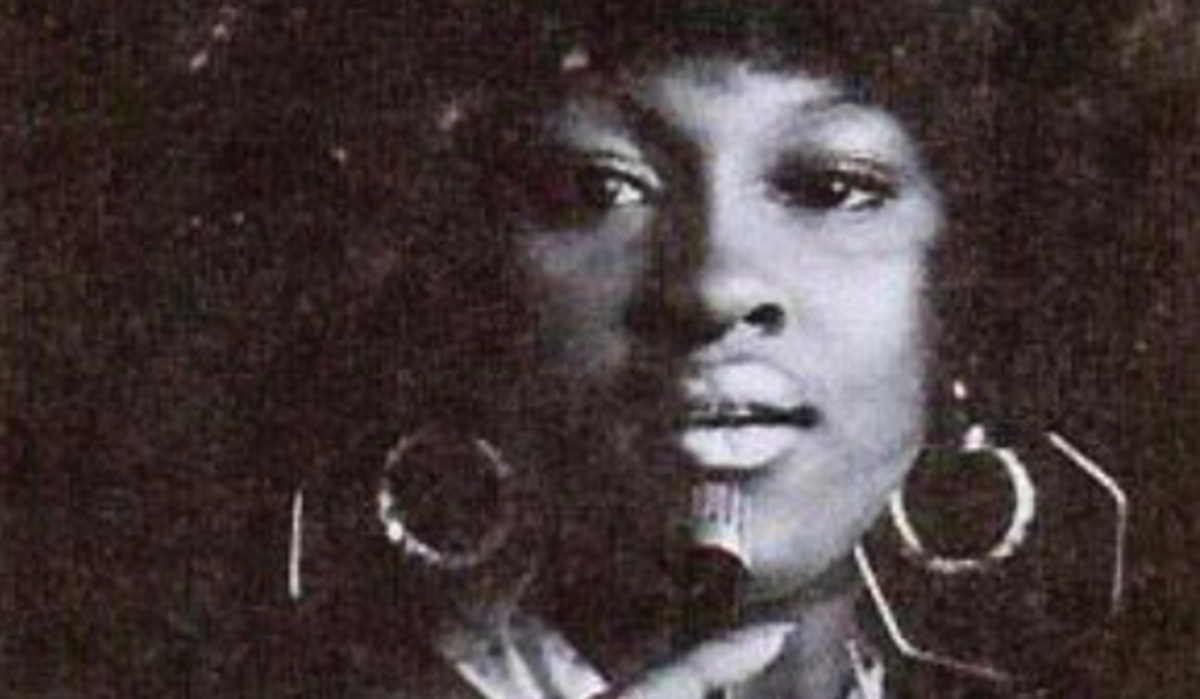




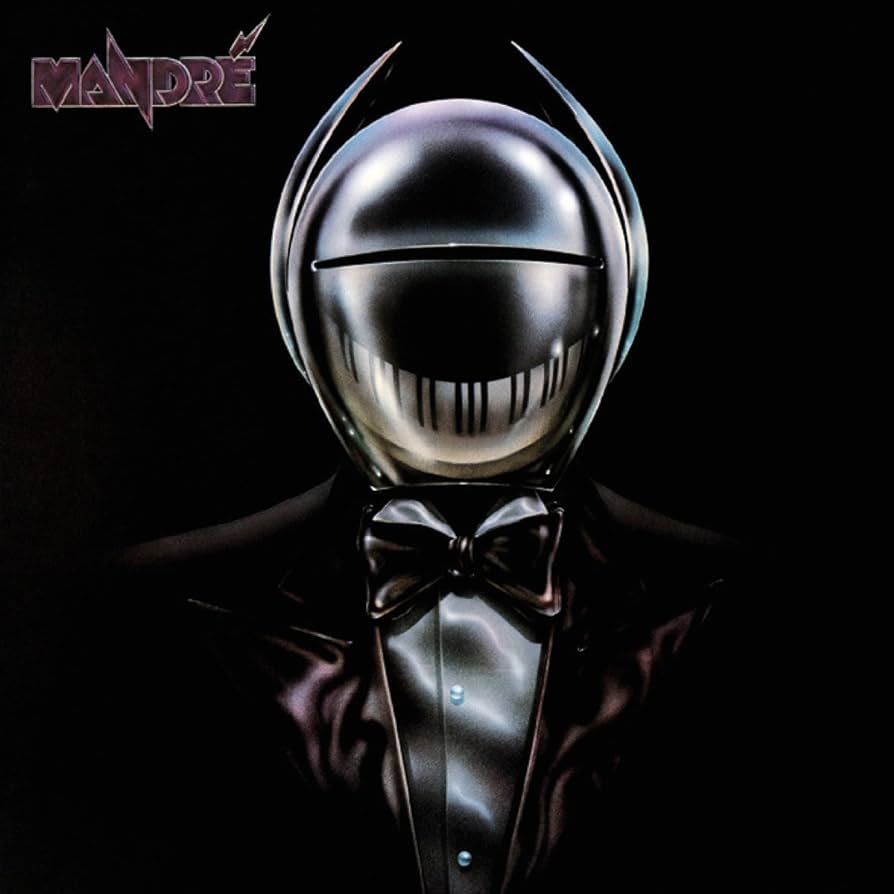

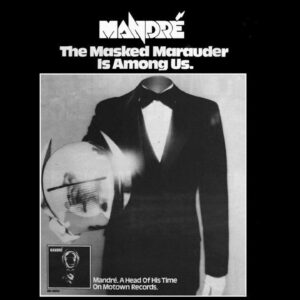



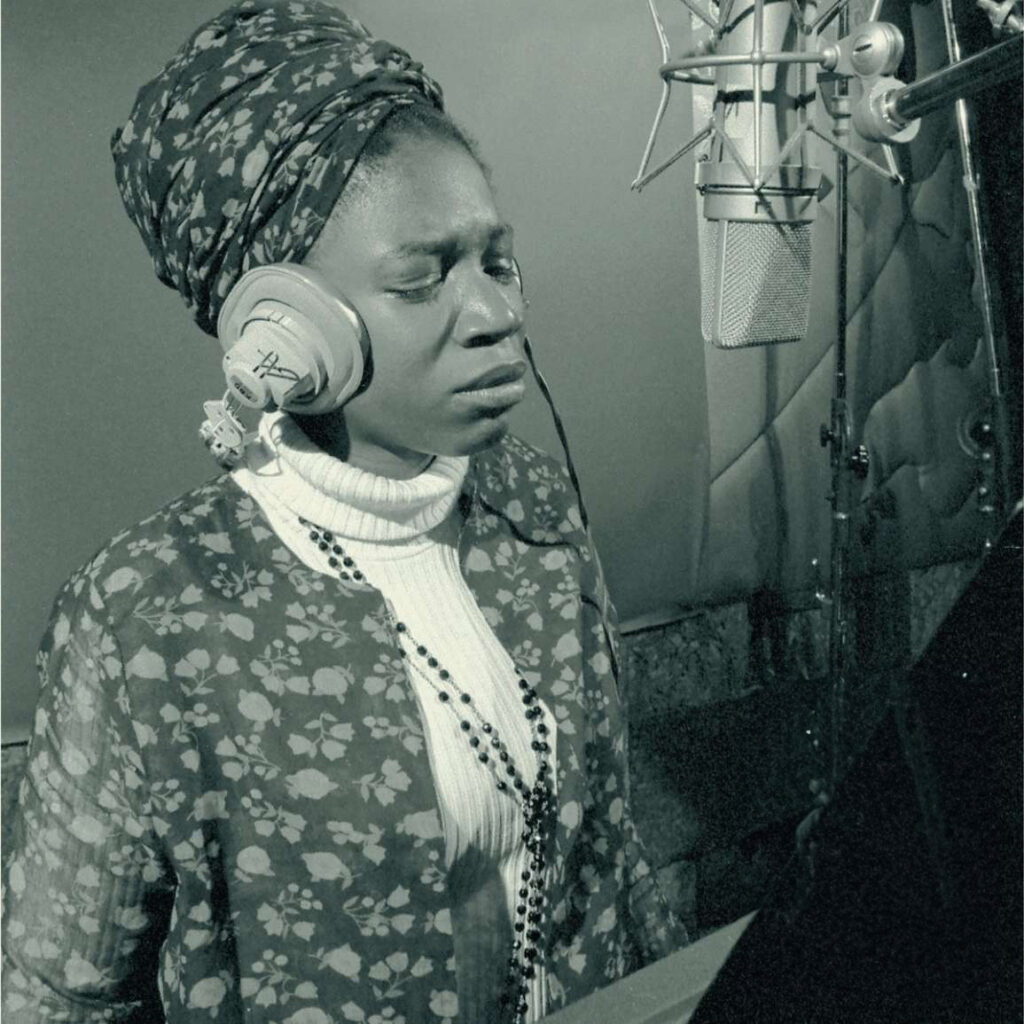
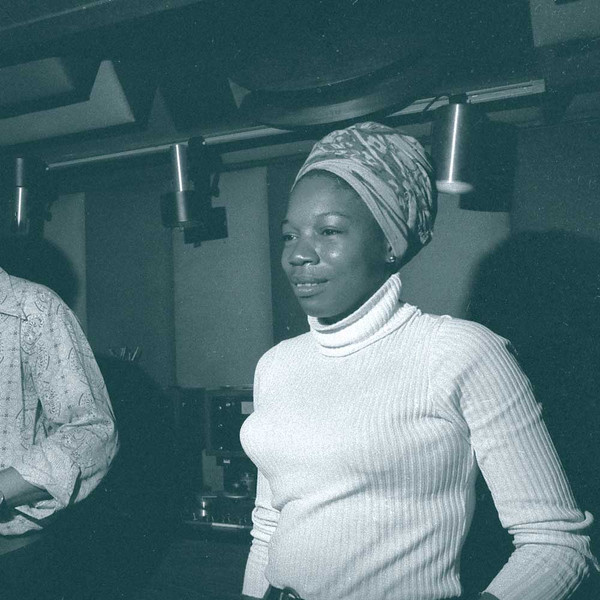
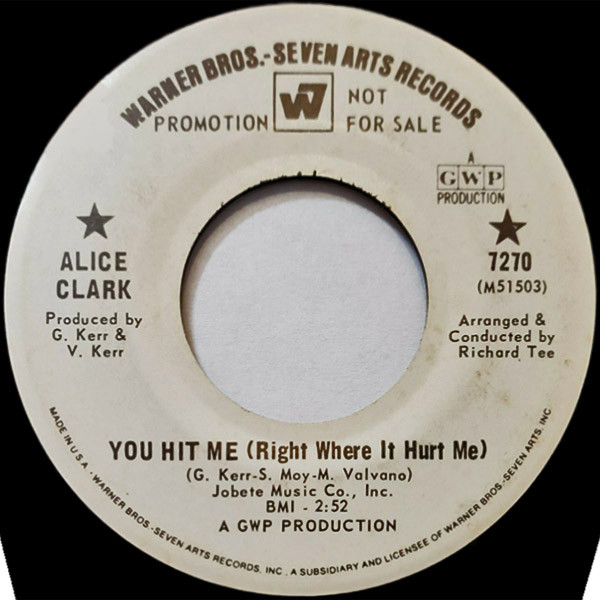
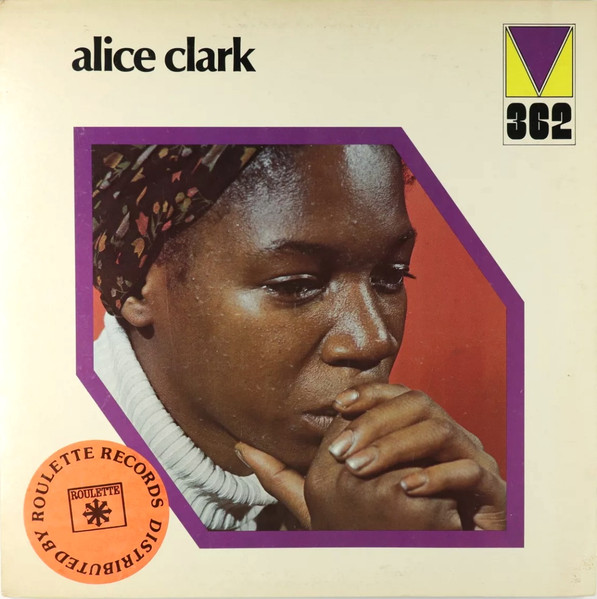

 SoulDisco had to chance to talk to Otis Williams about the upcoming Tour in germany.
SoulDisco had to chance to talk to Otis Williams about the upcoming Tour in germany.
 2. You are looking back on 60 years of successful stage presence. At what point were you aware that you essentially shaped the style of soul music?
2. You are looking back on 60 years of successful stage presence. At what point were you aware that you essentially shaped the style of soul music? 3. Which special moments of your career do you remember the most?
3. Which special moments of your career do you remember the most? One special moment that still stands out was when we learned we had a national hit with our single, “The Way You Do The Things You Do” which was written by Smokey Robinson and Bobby Rogers. That was a big moment. We had just come back to Detroit from one of tour stints in cities around Michigan. When we got to Motown, we were told the song had hit the charts at #76. By the time we had released “The Way You Do The Things You Do,” we had recorded seven or eight records including “I Want a Love I Can See,” which we thought was going to be a hit. When we saw the music trades with our song on the chart, we just sat there in the Motown lobby and cried like little boys about to get their butts whipped. The song took off in Chicago, Philly, New York and around the country and climbed the national Pop chart to # 11. That was 1964 and we’ve been rolling ever since.
One special moment that still stands out was when we learned we had a national hit with our single, “The Way You Do The Things You Do” which was written by Smokey Robinson and Bobby Rogers. That was a big moment. We had just come back to Detroit from one of tour stints in cities around Michigan. When we got to Motown, we were told the song had hit the charts at #76. By the time we had released “The Way You Do The Things You Do,” we had recorded seven or eight records including “I Want a Love I Can See,” which we thought was going to be a hit. When we saw the music trades with our song on the chart, we just sat there in the Motown lobby and cried like little boys about to get their butts whipped. The song took off in Chicago, Philly, New York and around the country and climbed the national Pop chart to # 11. That was 1964 and we’ve been rolling ever since. Another huge moment came in 1965, when “My Girl,” became a #1 Pop chart hit. That hit was a game changer for The Temptations. We were performing at the Apollo Theater in Harlem when we received telegrams from Berry Gordy, The Supremes, The Beatles and others, congratulating us on our #1 success. It was The Temptations’ first #1 charted record and sold multi-millions of copies. “My Girl” was inducted into The Grammy Hall of Fame in 1998 and in 2018 it was entered into the National Recording Registry by the Library of Congress. It has become a standard now. “My Girl” opened the door to global attention for the group and we continued to produce a string of chart hits in the decades to follow.
Another huge moment came in 1965, when “My Girl,” became a #1 Pop chart hit. That hit was a game changer for The Temptations. We were performing at the Apollo Theater in Harlem when we received telegrams from Berry Gordy, The Supremes, The Beatles and others, congratulating us on our #1 success. It was The Temptations’ first #1 charted record and sold multi-millions of copies. “My Girl” was inducted into The Grammy Hall of Fame in 1998 and in 2018 it was entered into the National Recording Registry by the Library of Congress. It has become a standard now. “My Girl” opened the door to global attention for the group and we continued to produce a string of chart hits in the decades to follow. Another memorable time was (during our Classic Five period) doing five shows in one day at The Apollo Theater in New York City. The line of fans outside the Theater wrapped around several blocks and avenues. We opened the show with the song “Hello Young Lovers,” rather than opening with an R&B tune. That was a bold move to make at the Apollo. The curtain would be closed and when our famous four-headed microphone was placed on the stage in front of the closed curtain, the audience would go wild. The curtain would go up and we’d start with that song and fans would rush to the front of the stage. Also memorable were our appearances at the famous Copacabana supper club in New York, and our 13 appearances on The Ed Sullivan television show, and so many others national TV programs. We knew back then that our music had become iconic in the global entertainment world.
Another memorable time was (during our Classic Five period) doing five shows in one day at The Apollo Theater in New York City. The line of fans outside the Theater wrapped around several blocks and avenues. We opened the show with the song “Hello Young Lovers,” rather than opening with an R&B tune. That was a bold move to make at the Apollo. The curtain would be closed and when our famous four-headed microphone was placed on the stage in front of the closed curtain, the audience would go wild. The curtain would go up and we’d start with that song and fans would rush to the front of the stage. Also memorable were our appearances at the famous Copacabana supper club in New York, and our 13 appearances on The Ed Sullivan television show, and so many others national TV programs. We knew back then that our music had become iconic in the global entertainment world. I’ll always remember in 1968, and 1969, Diana Ross and the Supremes and The Temptations starred in primetime network television specials “TCB (Taking Care of Business)” and “G.I.T. (Getting It Together) on Broadway.” Never before had two contemporary African American groups headlined their own #1 nationally rated television specials, both produced by Motown, an African American owned company. The “TCB” special was named the #1 rated variety show in 1968 and received an Emmy® nomination. The original cast soundtrack album, TCB, reached #1 on Billboard’s Top 200 Albums chart.
I’ll always remember in 1968, and 1969, Diana Ross and the Supremes and The Temptations starred in primetime network television specials “TCB (Taking Care of Business)” and “G.I.T. (Getting It Together) on Broadway.” Never before had two contemporary African American groups headlined their own #1 nationally rated television specials, both produced by Motown, an African American owned company. The “TCB” special was named the #1 rated variety show in 1968 and received an Emmy® nomination. The original cast soundtrack album, TCB, reached #1 on Billboard’s Top 200 Albums chart. Other big moments included when The Temptations delivered Motown’s and our first-ever, GRAMMY® at the 11th Annual Grammy® Awards in 1969 for Best Rhythm & Blues Performance by a Duo or Group, Vocal or Instrumental, for our song, “Cloud Nine.” We have also been awarded five Grammy® Awards, including the Recording Academy’s Lifetime Achievement Grammy® Award.
Other big moments included when The Temptations delivered Motown’s and our first-ever, GRAMMY® at the 11th Annual Grammy® Awards in 1969 for Best Rhythm & Blues Performance by a Duo or Group, Vocal or Instrumental, for our song, “Cloud Nine.” We have also been awarded five Grammy® Awards, including the Recording Academy’s Lifetime Achievement Grammy® Award. Earlier this year, it was incredible delivering our 60th anniversary album, TEMPTATIONS 60. Being back in the studio this time reminded me of how long and rewarding a journey it has been. I get emotional when I think about it, because we poured every ounce of our heart and soul into making the new album very special, and I can proudly say it showcases brand new songs that reflect the best of what’s vintage, and modern, in our music. This new album represents generations of unique melodies, lyrics and songs, distinctly our own. Some of the new songs echo our original ballads and love songs, while others capture current, topical vibes of the 21st Century. It also includes new songs that reflect the times we are living in now. It brings together again several great producers we have worked with in the past, including Smokey Robinson, Narada Michael Walden, Dennis Nelson and Thomas “TC” Campbell. Now, as divine grace would have it, we got another chance to collaborate again.”
Earlier this year, it was incredible delivering our 60th anniversary album, TEMPTATIONS 60. Being back in the studio this time reminded me of how long and rewarding a journey it has been. I get emotional when I think about it, because we poured every ounce of our heart and soul into making the new album very special, and I can proudly say it showcases brand new songs that reflect the best of what’s vintage, and modern, in our music. This new album represents generations of unique melodies, lyrics and songs, distinctly our own. Some of the new songs echo our original ballads and love songs, while others capture current, topical vibes of the 21st Century. It also includes new songs that reflect the times we are living in now. It brings together again several great producers we have worked with in the past, including Smokey Robinson, Narada Michael Walden, Dennis Nelson and Thomas “TC” Campbell. Now, as divine grace would have it, we got another chance to collaborate again.” The Temptations first performed with The Four Tops on the Motortown Revue Tours in the 60s. We really enjoyed being on the road together. Back in the day, back in Detroit we considered them competition. They had a sophisticated style and some fantastic moves on stage. Duke Fakir, a founding member of The Tops, and I go back as far as those very early days of Motown. I even remember seeing the Tops perform in Detroit back in fifties and I thought they were greatest, and still do.
The Temptations first performed with The Four Tops on the Motortown Revue Tours in the 60s. We really enjoyed being on the road together. Back in the day, back in Detroit we considered them competition. They had a sophisticated style and some fantastic moves on stage. Duke Fakir, a founding member of The Tops, and I go back as far as those very early days of Motown. I even remember seeing the Tops perform in Detroit back in fifties and I thought they were greatest, and still do.
 One of most memorable experiences with The Tops was back in 1983 when we did the Motown 25 television special together. That network television special had to be one of the biggest events that year. Motown brought together many of its famous artists for the special, including The Supremes, The Temptations, The Four Tops, Marvin Gaye, Stevie Wonder, The Jacksons, Martha Reeves, and many others. Someone came up with the idea to have The Temptations and The Four Tops do a little singing battle during the show.
One of most memorable experiences with The Tops was back in 1983 when we did the Motown 25 television special together. That network television special had to be one of the biggest events that year. Motown brought together many of its famous artists for the special, including The Supremes, The Temptations, The Four Tops, Marvin Gaye, Stevie Wonder, The Jacksons, Martha Reeves, and many others. Someone came up with the idea to have The Temptations and The Four Tops do a little singing battle during the show.



